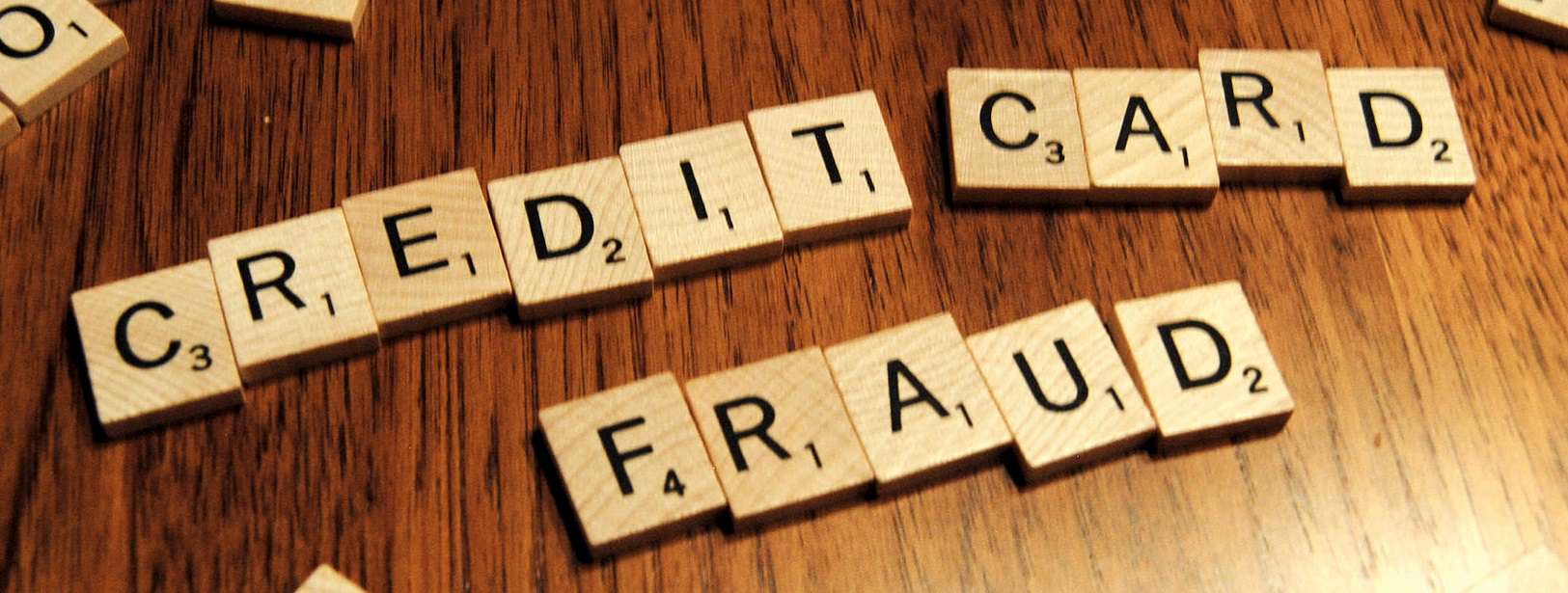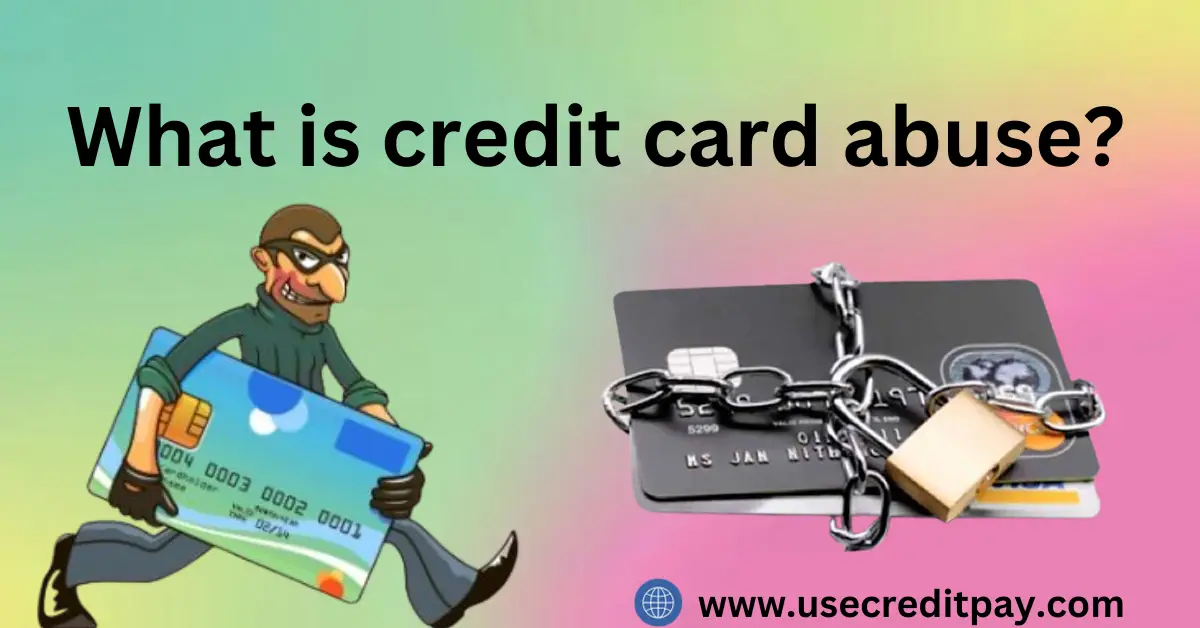Credit card abuse involves the unauthorized or improper use of someone else’s credit card for financial gain or personal benefit. It includes actions such as making unauthorized purchases, using someone else’s credit card without their permission, or engaging in fraudulent activities to obtain credit card information.
This form of abuse can lead to financial loss, damage to credit scores, and legal consequences for the perpetrators. It is crucial for individuals to protect their credit card information and report any suspected instances of abuse promptly to prevent further harm.
Signs Of Credit Card Abuse
Unfamiliar charges and transactions
If you notice any unusual or unfamiliar charges and transactions on your credit card statement, it could be a sign of credit card abuse. It’s important to review your statement regularly and immediately report any suspicious activity to your credit card provider.
Unexpected credit card statements
Receiving credit card statements that you weren’t expecting or didn’t authorize is another red flag for credit card abuse. Promptly investigate these statements and contact your credit card company to resolve any unauthorized charges.
Changes in credit card behavior
Any significant changes in your credit card behavior, such as suddenly maxing out your credit limit, making excessive purchases, or drastically increasing your debt level, may indicate credit card abuse. **Regularly** monitor your credit card activity and promptly address any unusual patterns.
Types Of Credit Card Abuse
Credit card abuse encompasses various types of fraudulent activities that can cause financial harm to individuals. One common form is the unauthorized use of credit cards, where an individual’s card is used without their knowledge or consent. This can occur when a card is lost or stolen and used by someone else for purchases or withdrawals.
Another prevalent type of credit card abuse is credit card fraud and identity theft. In these cases, criminals obtain personal information, such as social security numbers or passwords, to falsely assume someone’s identity and make unauthorized credit card transactions.
Merchant fraud and scams targeting cardholders are also significant concerns. This involves deceitful practices by merchants, such as overcharging customers or running unauthorized transactions on their credit cards.
Preventing Credit Card Abuse
Preventing Credit Card Abuse:
Safeguarding credit card information is crucial in preventing credit card abuse. It is essential to protect your card details from falling into the wrong hands.
- Firstly, always keep your credit card in a secure place, such as a wallet or a locked drawer.
- When making online purchases, ensure that the website is secure by looking for the padlock symbol in the address bar.
- Regularly monitor your credit card statements to identify any unauthorized charges, and report them immediately to your card issuer.
- If you notice any suspicious activity, such as unexpected notifications or unfamiliar transactions, contact your credit card issuer without delay.
By following these preventive measures, you can significantly reduce the risk of credit card abuse and protect your financial well-being.
Overview Of Credit Card Abuse
Differentiating between misuse and abuse: It is important to understand the distinction between credit card misuse and abuse. While misuse can refer to accidental or unintentional misuse of a credit card, abuse involves deliberate and fraudulent activities. Examples of credit card abuse: Credit card abuse can take various forms, including identity theft, unauthorized charges, card skimming, and counterfeit card usage. These activities can result in significant financial losses for consumers and damage their creditworthiness. Impact of credit card abuse on consumers: Credit card abuse not only affects individuals’ financial well-being but also leads to a loss of trust in financial institutions. It is essential for consumers to be vigilant and take necessary precautions to prevent credit card abuse, such as regularly monitoring their statements, using secure payment methods, and promptly reporting any suspicious activities to their card issuer.
Consequences Of Credit Card Abuse
One of the major consequences of credit card abuse is the financial impact on individuals. When credit cards are misused, it can lead to severe financial struggles. Abusers often find themselves with damaged credit scores and credit histories. Late payments, high amounts of debt, and unpaid balances can all contribute to a poor credit score, making it difficult to qualify for loans or credit in the future. Additionally, credit card abuse can have legal consequences. Engaging in fraudulent activities with credit cards is a crime and can lead to hefty fines and even imprisonment. It is important for individuals to be aware of the potential repercussions and to use credit cards responsibly to avoid these negative outcomes.
Credit Card Abuse Laws And Regulations
It is crucial to understand the laws and regulations surrounding credit card abuse. These regulations provide an overview of the rules that govern credit card usage and help protect consumer rights. The laws specify the actions that qualify as credit card abuse and outline the punishments and penalties for such offenses.
Consumers have specific rights and protections when it comes to credit cards. These include the right to dispute unauthorized charges, protection against fraudulent activities, and the right to receive accurate and transparent billing statements. These regulations ensure that individuals are safeguarded from any fraudulent or abusive practices.
Credit card abuse is a serious offense and can lead to severe punishments and penalties. Offenders may face fines, imprisonment, or both, depending on the extent of the abuse. The severity of penalties emphasizes the importance of adhering to the laws and regulations governing credit card usage.
Reporting And Resolving Credit Card Abuse
Dealing with credit card abuse can be a stressful experience, but knowing how to report and resolve it is crucial in protecting your finances. When you suspect credit card abuse, it’s important to report it immediately to your card issuer. Contact their customer service department through their dedicated helpline or online platform. Provide them with details of the unauthorized transactions, including dates, amounts, and any supporting evidence you have.
In addition to reporting the abuse to your card issuer, consider filing a police report as well. Contact your local law enforcement agency or visit the nearest police station in person. They will guide you through the process and provide you with an official report, which may be required by your card issuer to resolve the issue.
To further mitigate the effects of credit card abuse, notifying the credit bureaus is recommended. This can help protect your credit score and prevent any future fraudulent activity. Contact the major credit bureaus, such as Experian, Equifax, and TransUnion, and inform them about the abuse to have it noted on your credit report.

Credit: www.txcrimdefense.com
Frequently Asked Questions For What Is Credit Card Abuse
What Is Credit Card Abuse?
Credit card abuse refers to the unauthorized use of someone else’s credit card information for personal gain. It can involve making purchases without permission, stealing card information, or using a stolen card. This is a serious crime that can result in legal consequences and financial loss for the victim.
How Can Credit Card Abuse Affect Me?
Credit card abuse can have severe consequences for individuals. It can lead to financial loss, damaged credit scores, and identity theft. Victims may be responsible for fraudulent charges made on their cards, which can be a significant burden. It’s important to monitor your credit card activity regularly and report any suspicious transactions immediately.
How Can I Protect Myself From Credit Card Abuse?
There are several steps you can take to protect yourself from credit card abuse. First, keep your credit card information secure and never share it with anyone. Second, regularly check your credit card statements for any unauthorized charges. Third, use secure online payment methods and avoid making purchases on untrusted websites.
Lastly, consider using two-factor authentication for online transactions for an extra layer of security.
What Should I Do If I Suspect Credit Card Abuse?
If you suspect credit card abuse, it’s crucial to take immediate action. Firstly, contact your credit card issuer and report the unauthorized charges. They will guide you through the process of canceling your card and receiving a new one. Secondly, file a police report to document the crime and protect yourself legally. Lastly, monitor your credit reports and consider placing a fraud alert to prevent further abuse.
Credit card abuse is a serious issue that can have detrimental consequences on financial well-being. It involves the misuse of credit cards through unauthorized transactions, exceeding credit limits, and ignoring payment obligations. Understanding the signs of credit card abuse is crucial to protect yourself from becoming a victim.
By staying vigilant, monitoring your transactions regularly, and reporting any suspicious activity, you can minimize the risk of credit card abuse and safeguard your financial stability. Stay alert, stay informed, and stay protected.






